In your role as Head of Recruitment, and with a background in coaching, what is it that you are looking for within young players?
It depends on the age really. At the younger end of the spectrum I am primarily looking at the physical characteristics over tactical or technical. At 6, 7, 8 years old I want to see if they have the ABCs that will set them up well going forward, technique can come in time. It's also important to get an idea of how they respond to the coach - can they learn?
It has always amazed me somewhat that football clubs take players at such a young age. Although a very different sport and structure, the NFL Draft featured high numbers of players who were multi-sport athletes up until (and including) college. Football is very much focused on early specialization, getting the kids in at 6 years old. What is your view on this and how does it affect your role?
I think I see this differently to many - I've not got too many issues with early specialization, it certainly hasn't done Xavi and Iniesta any damage to be playing football regularly since a young age. My opinion is that the focus should be on the coaching itself - hopefully through good coaches we can bring out a variety of skills and put our players into a variety of environments to ensure they have a rounded development that maximises their potential to make it as professional footballers. In terms of my role in recruitment, the age of the player links to their strengths and position - a midfielder needs to have a high technical ability for example. It also depends on the club itself and what level they are playing at. In each of the professional leagues the game is slightly different and requires players with different skills and strengths. Clubs in the Premier League may want to recruit and develop players in a different way to those in League 1 or League 2.
So for your role, in an Academy that is highly regarded, are you recruiting for players with Premier League potential and skillset despite being in the Championship?
I believe that should be the aim, yes. Having that ambition to recruit players suitable for the top level of football.
In 'The Nowhere Men', you mentioned how the development of some young players is inhibited because their coaches are wedded to winning. Is that still an issue you encounter and how do you break that?
Firstly, I want to say that I have no issue with winning as a concept - I think it is important to have competition where teams win and lose. However, it is the winning-at-all-costs mentality that can be harmful and the connection that winning has for the young players is the important thing. It should be part of the game but not the over-riding factor, especially for young players who are still learning and developing. Some parents and coaches see it differently, and that's hard to combat. But the nature of winning and losing, I think, is a good lesson - players need to experience hardship at times as it helps them to grow and it shows a lot about their character. At the end of the day, we are operating at the top end of elite sport and players need to be able to roll with hardship and keep going.
I also read that it is important for you to remove the pressure from your players, why is that crucial for you and how do you do it? Pulling on a Brentford FC shirt must inherently bring an element of pressure with it?
You're right, it does - but we want to create an environment where the pressure is off and the fear factor is removed. I'm not saying it needs to be a relaxed environment, but one where they are able to take risks and develop as a result. When players take risks they can learn, they can show themselves for who they really are. Too often, Academies are run on fear - the fear of being released and not making it. That inhibits players and encourages them to play it safe.
A number of Academies have very strong reputations, if you were to set-up your own club how would you build the Academy to produce good players?
Many Academies get a lot of praise, however I think the key things come down to good coaches at a given time as opposed to it being something inherent within the club itself; that is they have good people in place who coincide with a number of talented youngsters. I'd build my club around high level recruitment, high level coaching and plenty of playing football - that is how young players develop.
You used to coach, and you interact with coaches daily - what is your view on the current coach education provision? I myself have some reservations about the coach education within rugby, certainly.
I wouldn't say I'm a huge fan of The FA coaching courses even though I have had to do them myself. It is all about the qualification itself rather than the learning aspect. It's like a driving test, you pass an assessment and there is no real measure of quality or improvement as a coach after you have been certified.
Box-ticking...
Yeah, in many cases and how do you know what you've learnt? How does the FA know? There are many coaches in the system just aren't at the level because they can pass a course but might not be developing themselves as a coach, or be able to communicate effectively with players..
A lot of doors in rugby are closed by ex-pros moving into coaching. I'm sure many are very good, but I've seen plenty who aren't too...
The same in football. I see it all the time and I think it'll continue to get worse. I'm currently working on an a course with The FA on Talent ID which is based on ongoing learning stretching my abilities over 18 months, hopefully a similar approach will come over to the coaching side too. Another problem is academic inflation - so many coaches are having to shell out huge sums of money to be more qualified than the next coach, but everyone is having to do it and it kills young coaches, how can they afford it?
I know a number of S&C coaches who feel the same way about their own industry, I've heard the phrase "S&C is one of the only industries where a Masters might get you an internship." What would your advice be, therefore, for young coaches?
Get experience and be themselves. Experience is key, and much of that will have to come from volunteering.
Is there anything that many Academies aren't doing that maybe you should be improving?
Certainly recruitment, who they bring in and why. Most Academies are just wanting to develop that one player, one star. However every team needs 11 players! My key philosophy is to give everyone a chance. If you recruit for the right reasons, and have the right coaches in place then give everyone the chance to earn that professional contract. Some clubs just don't have a player in a certain position in an age group, so will recruit a young player because it will do for the next couple of years. I don't think that is good enough. But, football is results-driven and staff turnover is high - it's hard to develop that environment.
Football is renowned for how few players actually make it to the top, and that many of those released at 18 have limited education and prospects. In rugby, Saracens put a huge emphasis on their culture and as part of this they insist on all players taking part in higher education or the workplace. Could this work in football if a club wanted to try a similar approach?
I think in football there is just too much choice. If we put the money into an education programme then maybe we can't pay them as much. If they can earn more down the road at another club then they can just sign for them - it's that simple. Culture as a concept is hugely important, I'm just not sure the education side would work in a football Academy set-up.
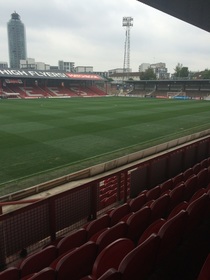
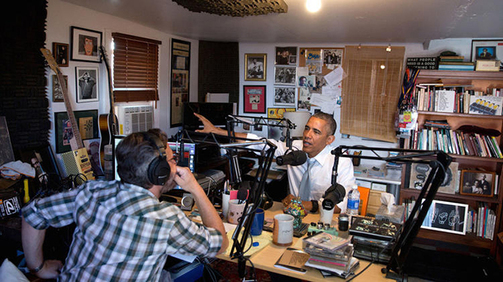
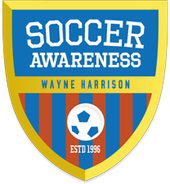
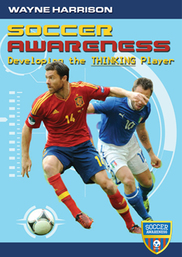
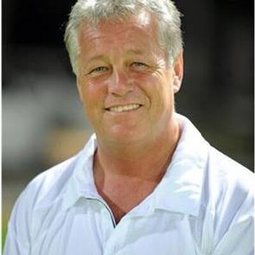
 RSS Feed
RSS Feed
